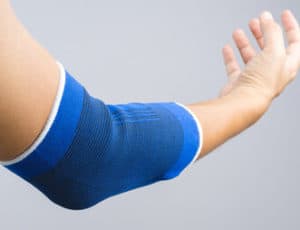Connecticut Nerve Damage Attorney

The nervous system reaches all parts of the human body, communicating between the brain and the body parts to control all manner of bodily functions and responses.
When nerve damage occurs, catastrophic health consequences can result. If someone else’s negligence has caused nerve damage to you or someone you love, call the Kocian Law Group.
Understanding the Nervous System
There are three types of nerves: autonomic nerves, motor nerves, and sensory nerves.
The autonomic nerves control unconscious bodily functions, such as heartbeat. Damage to these nerves can cause life-threatening conditions, because these nerves are vital to running basic body functions necessary for life. These nerves can be damaged by head trauma and exposure to dangerous chemicals.
A person with autonomic nerve damage may suffer:
- heart attacks or chest pains that go undetected
- hyperhidrosis [sweating too much]
- anhidrosis [sweating too little]
- bladder issues
- dry eyes
The sensory nerves give you information about your environment. These nerves allow you to see and smell. Sensory nerve damage can cause difficulty with senses, as well as pain or numbness. You can get sensory nerve damage through physical trauma to the skin, eyes, or ears.
A person with sensory nerve damage may suffer:
- increased sensitivity or pain in some areas of the body
- numbness in some areas of the body
- tingling or burning
- pain
- inability to sense position
Motor nerves allow you to move. Damage to the motor nerves reduces or eliminates the ability to control movement. Motor nerve damage is caused by physical trauma to muscles and other internal structures.
A person with autonomic nerve damage may suffer:
- fasciculation [twitching]
- paralysis
- muscle weakness or atrophy
What Are the Types of Nerve Damage?
There are three main classifications of nerve damage: neurapraxia, axonotmesis, and neurotmesis. Neurapraxia is the least serious form of damage, while neurotmesis is the most severe form of damage.
Neurotmesis is often caused by tearing of the nerve fibers, which can cause permanent paralysis or loss of function. However, if the injury merely crushes the nerves or places them under a lot of pressure, axonotmesis, the middle grade of nerve damage, may result. Healing this type of damage is slow going, but after years of therapy, the nerves may regenerate.
If you had neurapraxia instead of axonotmesis, healing may only take days or months. Neurapraxia occurs when an injury puts nerves under a mild amount of pressure or briefly cuts a nerve off from the blood supply.
Some common causes of nerve damage are:
- heavy metal poisoning
- carpal tunnel syndrome
- ulnar nerve entrapment
- multiple sclerosis
- bone marrow harvests
- surgical malpractice, especially during spinal surgery
- cauda equina syndrome
- Erb’s palsy






